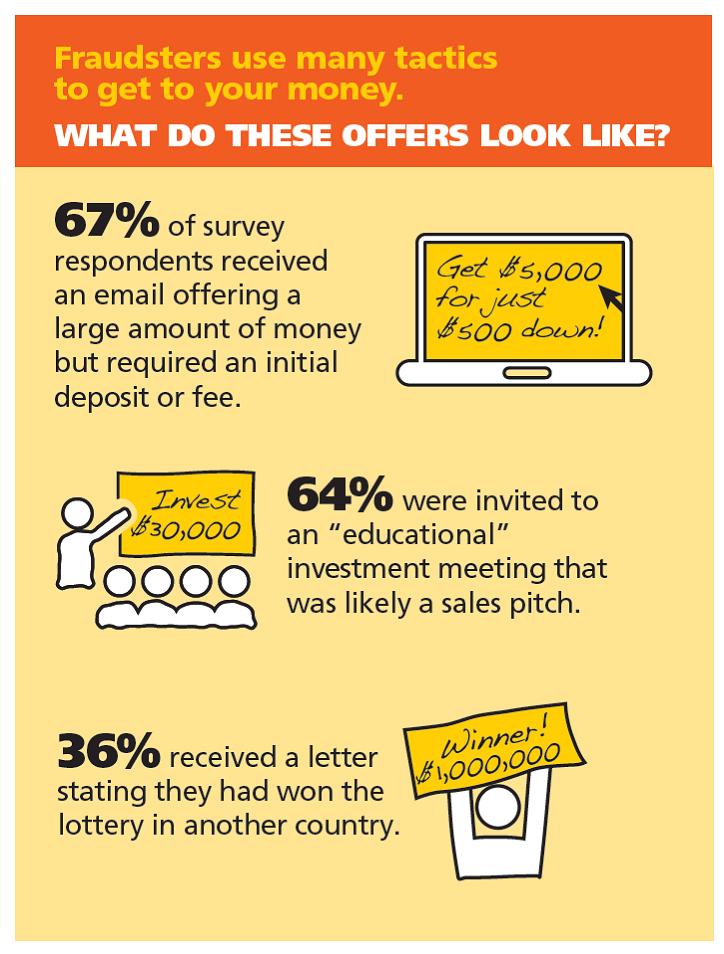Fraud Watch Aims to Limit Costly Scams Targeting Elderly
/Connecticut state agencies are collaborating, in concert with private sector organizations, to protect senior citizens from elder abuse. In issuing an Executive Order, Governor Malloy directed agencies to identify ways to increase public awareness, reporting and social network support of elder abuse victims, consider ways to improve programs for elder abuse victims, and identify best practices in elder abuse prevention, detection and intervention.
Recent surveys by AARP underscore the susceptibility of seniors to identity theft and fraud, reporting that seniors were likely to have engaged in behaviors including:
- Clicked on pop-up ads – 26 percent of victims and 10 percent of non-victims said they had done so in the previous seven days;
- Opened an email from an unknown person – 27 percent of victims and 17 percent of non-victims said they had done so in the past seven days;
- Signed up for free trial offers – 18 percent of victims and 8 percent of non-victims had done so in the previous week.
Fraud victims were also found to have experienced the following life experiences, which may have impacted the susceptibility statistics cited:
- Sixty-six percent of victims and 42 percent of non-victims said they “often or sometimes feel isolated.”
- Twenty-three percent of victims and 10 percent of non-victims said they had experienced loss of a job.
- Forty-four percent of victims and 23 percent of non-victims said they had suffered a “negative change in financial status” in the past two years.

Connecticut AARP is a member of the state’s Elder Justice Coalition Coordinating Council, which convened this summer, and one of the 16 agencies appointed by the Commissioner of the State Department on Aging to work on elder justice issues. AARP is leading the Consumer Fraud Education workgroup which has hit the ground running with the recent launch of the AARP Fraud Watch Network – a national campaign that connects people to experts, law enforcement and people like them who can help them spot and avoid scams.
As part of the CT Elder Justice Coalition, AARP Connecticut is working with state, federal and community organizations across the state utilizing Fraud Watch Network resources to educate older adults and their families about scams and provide tools and information to prevent identity theft and fraud.
Fairfield Chief of Police, Gary MacNamara, representing the CT Police Chiefs Association and a member of the CT Elder Justice Coalition, stated, “Police officers understand efforts to prevent our community members from being victims is really important. The first step in prevention is awareness. The AARP Fraud Watch Network provides a great place for older adults and families to get accurate information and become aware of the threat.”
Last fall, a survey of nearly 2,400 U.S. adults age 40 and older conducted by the FINRA Foundation revealed that financial fraud solicitations are commonplace. Many Americans are unable to spot fraudulent sales pitches, and older Americans (age 65 and older) are particularly vulnerable.
Specific findings include:
- Over 80 percent of respondents have been solicited to participate in potentially fraudulent schemes, and over 40 percent of those surveyed cannot identify some classic red flags of fraud.
- More than 8 in 10 respondents were solicited to participate in a potentially fraudulent offer. And 11 percent of all respondents lost a significant amount of money after engaging with an offer.
- More than 4 in 10 respondents found an annual return of 110 percent for an investment appealing, and 43 percent found "fully guaranteed" investments to be appealing.
- Americans age 65 and older are more likely to be targeted by fraudsters and more likely to lose money once targeted.
According to AARP volunteer and Executive Council member, Byron Peterson, “Identity theft, investment fraud and scams rob hard-working Americans of billions of dollars each year – with older adults often the biggest targets. Through the AARP Fraud Watch Network, we’re arming people with information about what makes them vulnerable and giving them access to the tools they need to outsmart con artists before they strike.”
The FINRA Foundation's survey found that 64 percent of those surveyed had been invited to an "educational" investment meeting that was likely a sales pitch. Additionally, 67 percent of respondents said they had received an email from another country offering a large amount of money in exchange for an initial deposit or fee. Upon being solicited for fraud, older respondents were 34% more likely to lose money than respondents in their forties.
In collaboration with partner agencies and organizations, AARP staff and volunteers are making fraud prevention presentations to community groups and encouraging all residents to sign up for watchdog alerts and stay abreast of current scams through the AARP Fraud Watch Network. Available free of charge to AARP members and non-members alike, and people of any age, the Fraud Watch Network provides an array of educational information and access to individuals who share experiences and provide expertise.






























